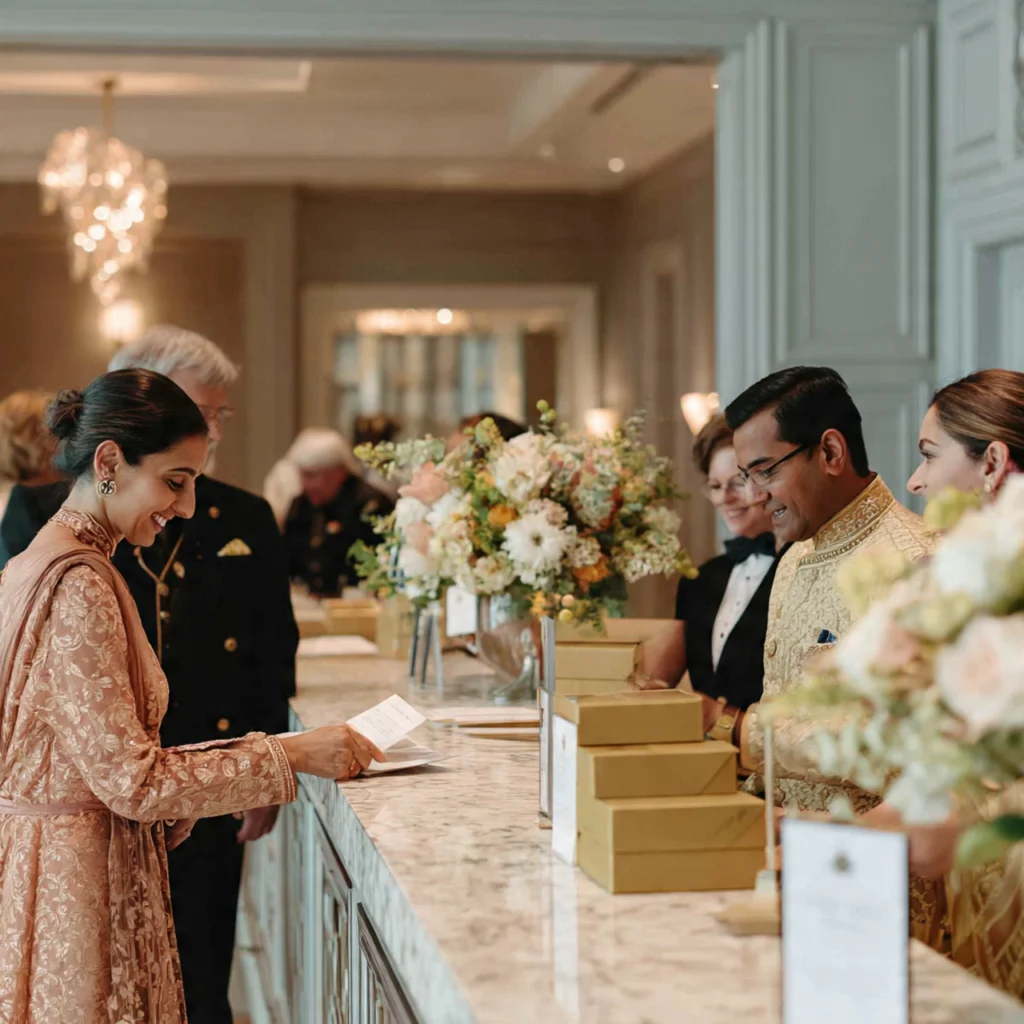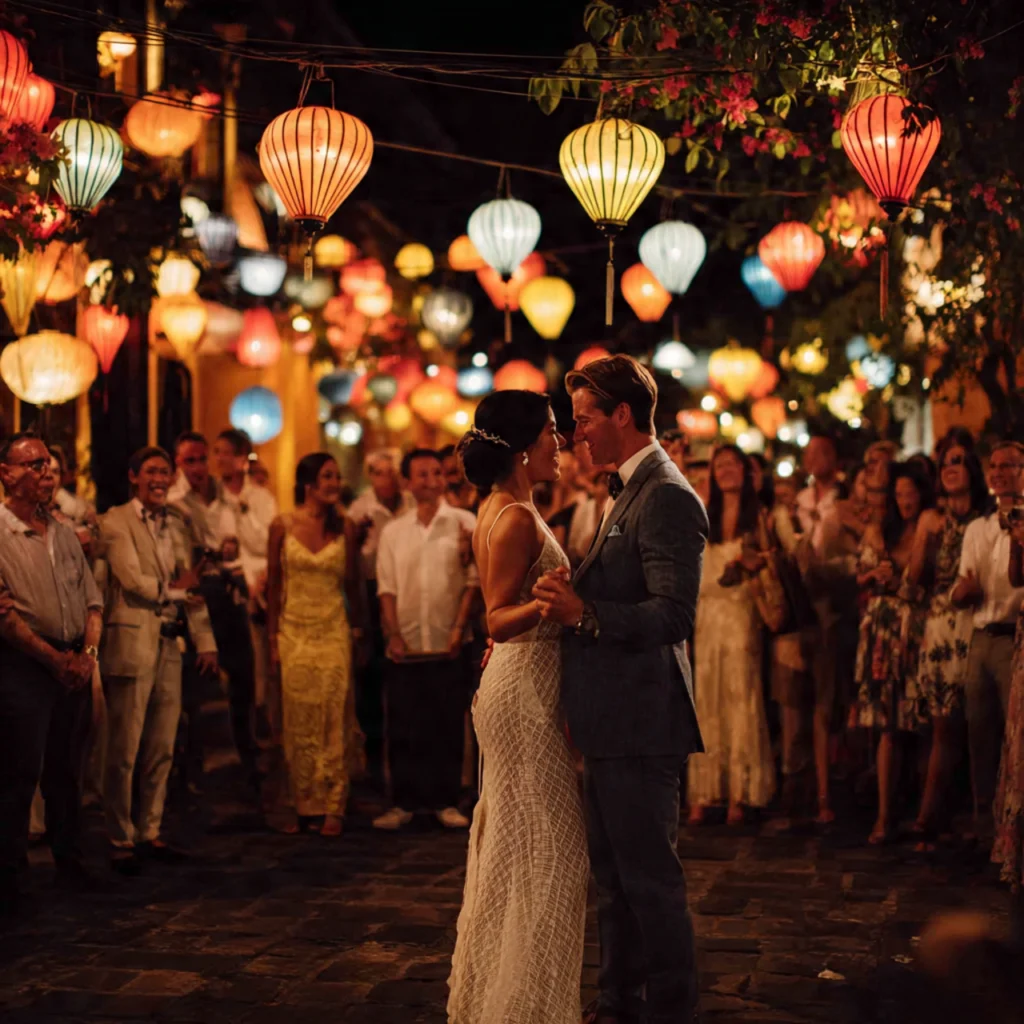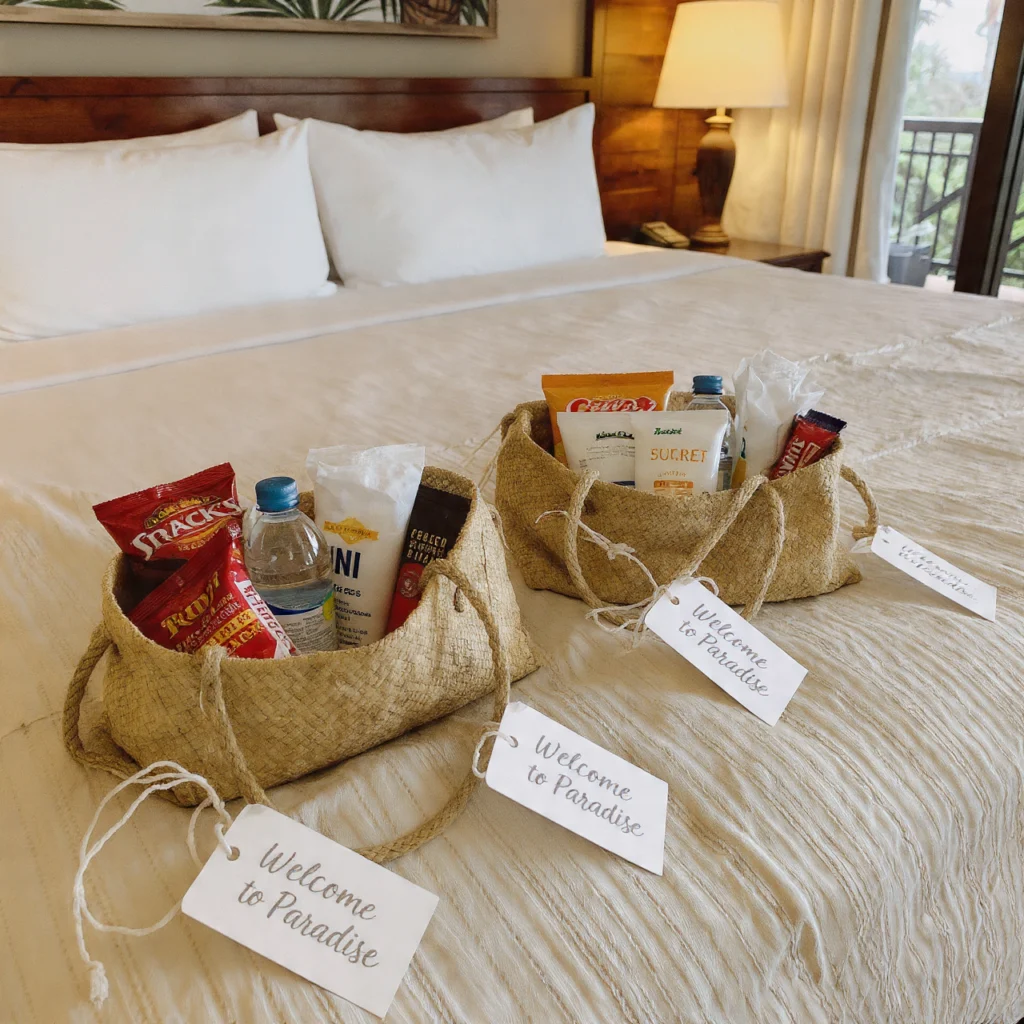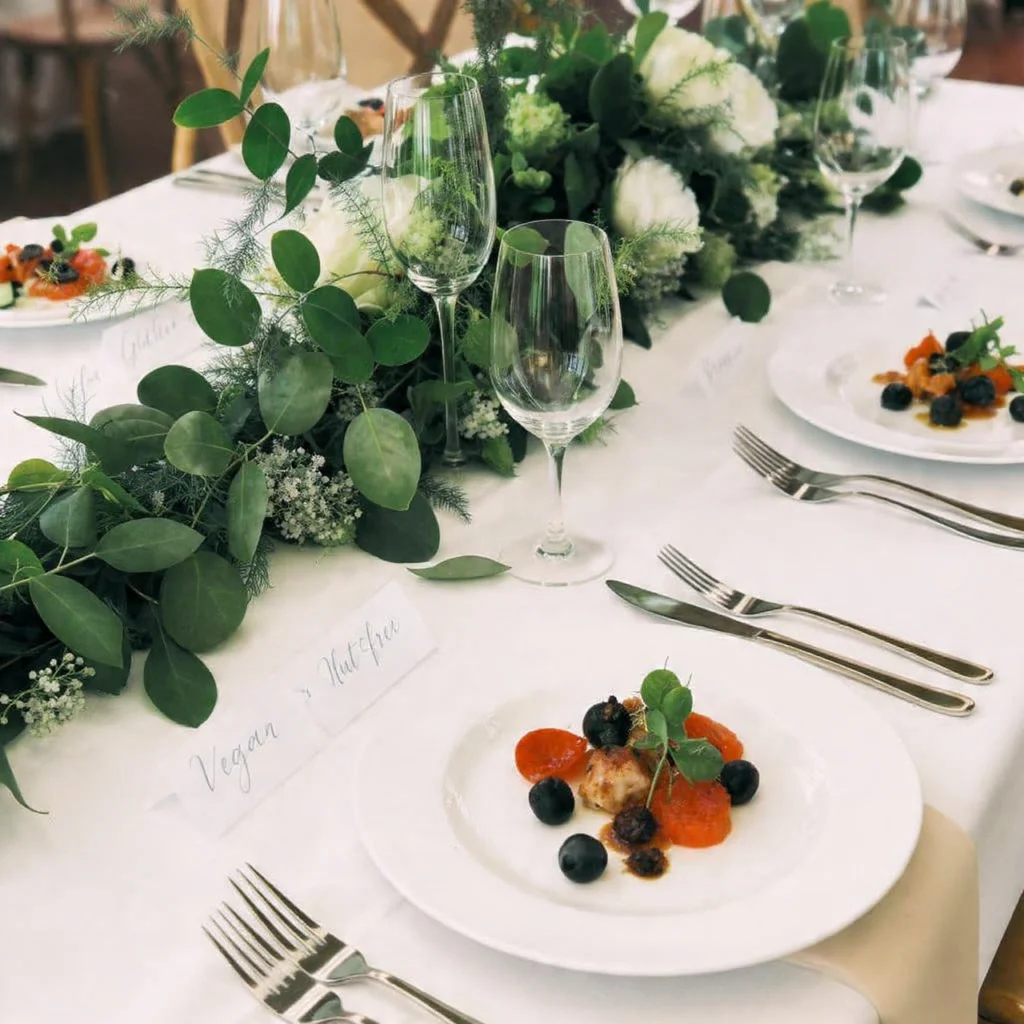23 Destination Wedding Etiquette Guide for Modern Couples
Planning a destination wedding brings unique challenges and rewards. One element that often gets overlooked is Destination Wedding Etiquette. From invitations to thank-you notes, guest behavior to dress codes, following proper etiquette ensures a smooth, respectful, and memorable event. In this article, you will find 23 ideas to help you navigate destination wedding etiquette with clarity and grace.
Setting clear expectations early

When invitations go out, set expectations concerning travel, attire, and cultural norms. Make your guests aware of local customs, weather, and language to reduce confusion. Good destination wedding etiquette begins with transparency in communication.
Choosing inclusive destinations

Select a location accessible to as many guests as possible. Be mindful of visa requirements, travel time, safety, and cost. Respect for your guests’ circumstances reflects strong destination wedding etiquette.
Sending “save the date” early

Issue your save the dates as soon as you finalize the locale and dates. This gives guests time to budget, plan, and coordinate schedules. Timely notifications are part of respectful destination wedding etiquette.
Providing travel logistics

Provide clear travel advice: best airlines, airport transfers, visa assistance, local transport. Create a resource sheet or a wedding website with travel tips. Including helpful logistics is a core aspect of destination wedding etiquette.
Offering group rates and booking help

Negotiate group rates with hotels and airlines, or recommend trusted vendors. You might even block rooms. Helping guests save money demonstrates thoughtful destination wedding etiquette.
Inviting thoughtfully

Understand that not everyone can attend due to time, expense, or obligations. Accept that declines are natural. Graciousness toward guests’ choices is key in destination wedding etiquette.
Having a courtesy RSVP deadline

Set a considerate RSVP due date, ideally several months ahead of the wedding. This gives you time to finalize headcounts and arrangements. Good timing is a fundamental principle of destination wedding etiquette.
Making travel optional rather than mandatory

Avoid phrasing invitations as though guests are required to come. Emphasize that travel is optional. True destination wedding etiquette respects guest autonomy.
Stating dress codes clearly

Indicate dress codes appropriate to climate and venue—beach formal, resort casual, tropical chic. Ambiguous styles lead to confusion. Clarity in dress instructions is essential to destination wedding etiquette.
Embracing local culture and customs

Incorporate regional traditions respectfully, like local ceremonies, music, attire. Educate guests on proper behavior around sacred sites or dress norms. Cultural sensitivity is a critical part of destination wedding etiquette.
Managing event schedule wisely

Leave room between events for rest or free time. Don’t overpack guests with nonstop activities. Balanced scheduling is thoughtful—and good etiquette in destination weddings.
Communicating free time and optional excursions

Offer optional group tours or activities, but make participation voluntary. State clearly which events are optional vs required. The line between expectation and pressure is fine—good etiquette keeps it clear.
Planning modest welcome gifts

Provide modest welcome bags with essentials—sunscreen, water, local snacks. Don’t overextend gifts to excess—tone it with context. Thoughtful tokens support good destination wedding etiquette.
Accommodating dietary requirements

Ask guests about allergies or restrictions well in advance. Work with caterers who can accommodate. Respecting health and diet is part of good destination wedding etiquette.
Positioning the travel cost in invitation wording

Avoid awkward phrasing like “attendance fee” or “contribution to wedding.” Frame it softly: “We hope you will join us; travel and stay are at your own cost.” The phrasing matters to preserve positive destination wedding etiquette.
Being mindful of guest budget

Don’t expect luxury for every guest. Offer tiered hotel options and advise lower-cost alternatives. Consider subsidizing certain costs if possible. Sensitivity to budget reflects strong destination wedding etiquette.
Timing events to local norms and time zones

Respect local rituals, rest periods, religious observances, and time zones. Don’t schedule events too early or late. Harmonizing with locale is proper destination wedding etiquette.
Clarifying who pays for what

Be clear in communications about who covers ceremony, meals, excursions. Avoid assumptions. Establishing financial boundaries is part of destination wedding etiquette.
Planning farewell or closing events

Include a simple farewell brunch or local gathering. It gives guests closure and a chance to express thanks. Ending gracefully is good destination wedding etiquette.
Sending reminders and updates

Share reminders for flights, packing lists, weather updates, schedules. Send updates as needed before travel. Consistent communication upholds proper destination wedding etiquette.
Managing plus-ones carefully

Decide and clearly state policy on guests bringing companions or children. Don’t assume. Being explicit helps avoid awkwardness and aligns with destination wedding etiquette.
Writing thoughtful thank you notes

After the wedding, send personalized thank you notes to guests, referencing travel effort or shared experience. Gratitude is the final act of destination wedding etiquette.
Handling unexpected hiccups gracefully

Accept last-minute cancellations, travel delays, or weather mishaps with composure. Be gracious and forgiving. Poise under pressure is an understated but important piece of destination wedding etiquette.
Frequently Asked Questions
What is the difference between local wedding etiquette and destination wedding etiquette?
Destination wedding etiquette must consider additional factors like travel logistics, visa, guest expenses, local customs, and extended stays—far beyond the scope of local wedding norms.
How far in advance should I send out travel information?
Ideally 6 to 9 months before the wedding. This gives guests time to secure visas, book flights, and make accommodations—a central requirement of destination wedding etiquette.
Should I subsidize hotels or flights for guests?
It depends on your budget and guest list. You might offer discounts or contribute to group bookings. Full subsidies are generous but not required. What matters most is clarity and fairness—two pillars of destination wedding etiquette.
Is it acceptable to require guests to pay for their stay?
Yes, it’s common. But wording matters. You should phrase it as “travel and lodging are at your own cost” to maintain respect and adherence to destination wedding etiquette.
How do I handle guests who decline because of cost or distance?
Respond with understanding and gratitude. Never guilt them. Maintain gracious tone. Recognizing guest constraints is a key principle of destination wedding etiquette.
Conclusion
Destination weddings can be magical. But without careful attention to Destination Wedding Etiquette, you risk confusion, offense, or resentment. Use clear communication, respect guest constraints, observe cultural norms, and plan thoughtfully. These 21 ideas serve as a guide to maintain dignity and harmony through your celebration. Focus on kindness, clarity, and respect—and your event will resonate with warmth, gratitude, and grace.






